You are entitled to a probation violation hearing (PVH) in California if you allegedly violated the terms of your probation, such as failing a drug test or not completing counseling.
The stakes are very high in PVHs. If the judge finds you are in violation, the judge may revoke your probation and remand you into custody for the remainder of your sentence.
PVHs can be difficult to win since prosecutors have to prove your violation only “by a preponderance of the evidence.” This is much lower than the “beyond a reasonable doubt” standard required in criminal trials.
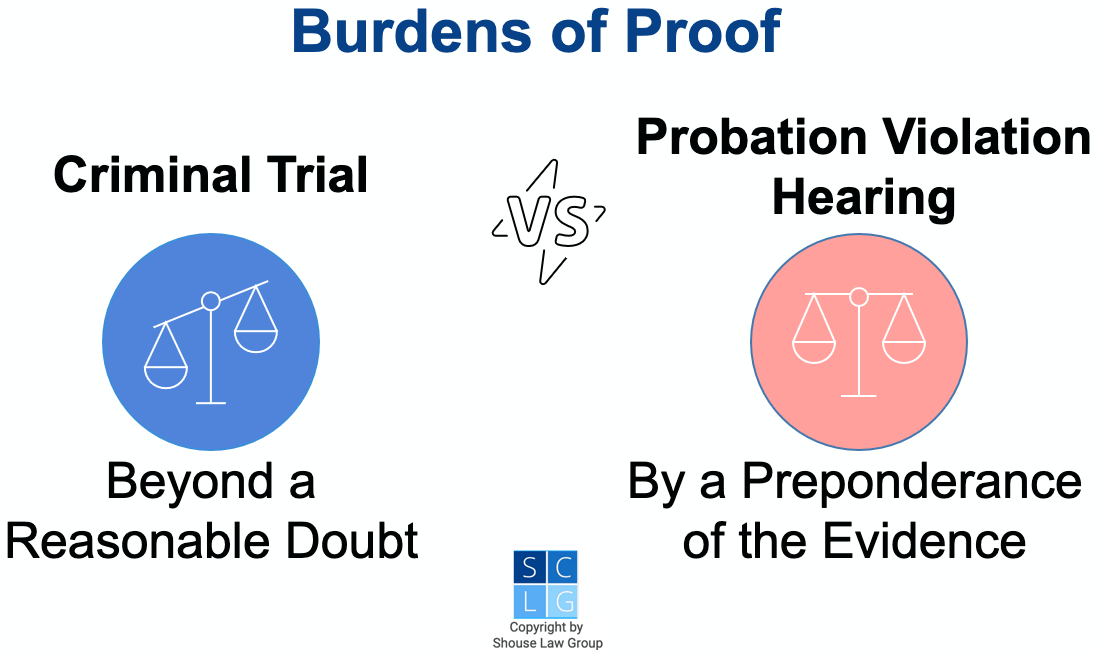
Here at Shouse Law Group, we have represented literally thousands of people accused of violating their probation, and we have a long track record of persuading judges to reinstate probation with no time in custody. Sometimes we can even meet with prosecutors ahead of time and persuade them to drop the case due to insufficient evidence.
In this article, our California criminal defense attorneys highlight the following topics re. probation violation hearings (PVHs):
- 1. PVH Process
- 2. Bail
- 3. Timing
- 4. Fighting Revocation
- 5. Common Violations
- 6. Hearsay
- Additional Reading
1. PVH Process
The Pre-Revocation Hearing
In California, the police or your probation officer typically alerts the judge in your case of any suspected probation violations. This is typically done at a hearing (sometimes called a “pre-revocation hearing”), where the police or P.O. testify in court and present the judge with a police report detailing the violation(s).
If the judge determines there is probable cause that you violated probation, they will issue a bench warrant for your arrest.1 If you are already in custody, the judge can issue a detention order to keep you in custody.
At this point, your probation is “summarily revoked” pending your formal probation violation hearing. During this time, you must continue to abide by your probation terms even though your probationary period has technically paused (“tolled”).2
Once a bench warrant is issued for your arrest, you can be apprehended at any time. To avoid a dramatic arrest scene, we would file in court a motion to recall (“quash”) your warrant and ask for a probation revocation hearing court date.
The Probation Violation Hearing
At your probation revocation hearing in California, prosecutors will present evidence, witnesses, and arguments to convince the judge that you violated one or more of your probationary terms.
At that point, we would counter with our own evidence, witnesses, and arguments that you did not violate probation. Alternatively, we can argue that any violations were not your fault or not serious enough to justify having your probation revoked.
If the judge determines that you committed no probation violation, then you win. This means you get to remain on probation with the same terms as before.
If the judge determines you did violate probation, the judge then decides whether to:
- give you a second chance by reinstating probation with or without additional or modified terms or
- revoke your probation, which may include remanding you into custody.3

A probation violation hearing (also called a surrender hearing) is a criminal law proceeding.
2. Bail
In California, the judge decides whether you can remain out on bail or your own recognizance pending your probation violation hearing. In practice, judges are more likely to let you out of custody if you are on misdemeanor probation rather than felony probation.
In serious cases where the judge believes you pose a public safety risk or flight risk, the judge may order a “no bail hold.” Though in our experience defending people accused of probation violations, we can usually persuade judges to grant bail by showing them that you have otherwise been compliant.
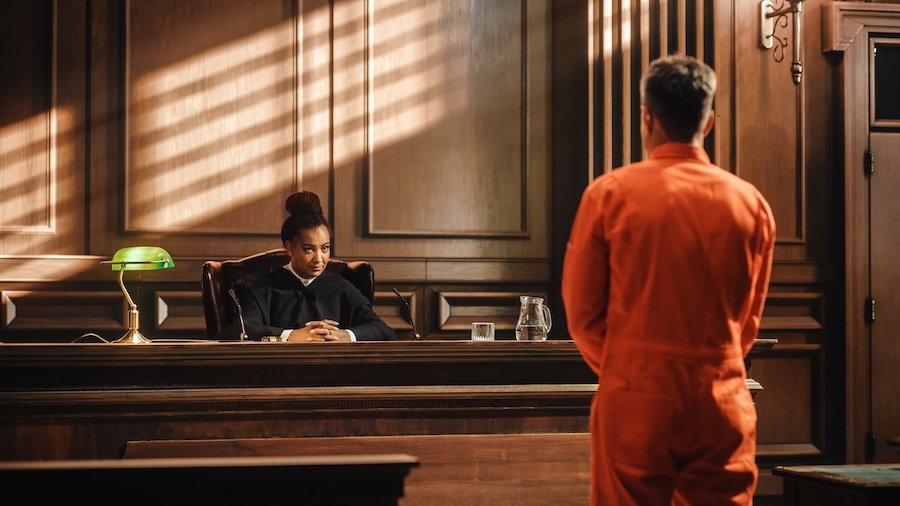
In serious probation violation cases, judges may issue “no bail bench warrants.”
3. Timing
There is no constitutional right to a “speedy” probation violation hearing, though it must occur within a reasonable time. In California, judges typically order that PVHs occur within a few weeks of learning of the alleged violation, if not sooner.
The U.S. Supreme court held that PVHs should occur as ““promptly as convenient after arrest while information is fresh and sources are available.” The same court reasoned that scheduling a PVH two months out was reasonable, and a California appellate court held that a two-month and 25-day wait for a PVH was reasonable as well.4
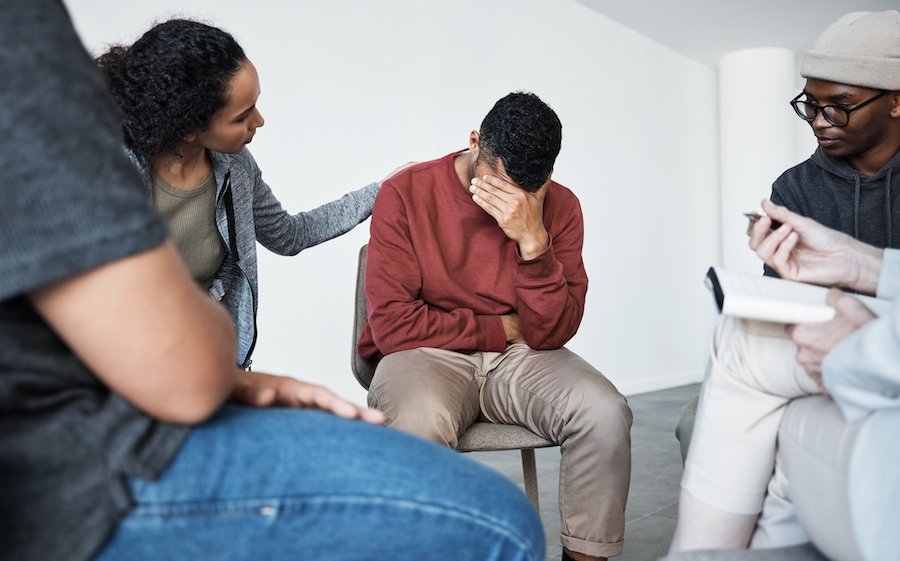
Counseling is a typical probation condition
4. Fighting Revocation
In California, our initial goal at a probation violation hearings is to show that prosecutors lack sufficient proof that you violated your probation. Depending on the facts of the case, we rely on such available evidence such as:
- eyewitness accounts,
- video surveillance footage,
- GPS records,
- medical records, and/or
- recorded communications (such as texts, emails, and voicemails).
If the judge finds that you did violate probation, our next goal is to persuade the judge to give you a second chance to remain on probation. We would argue such “mitigating” factors as:
- this was only your first probation violation,
- you did not realize you were violating probation,
- the violation was not serious,
- you pose no safety risk or flight risk,
- you have a largely clean criminal history,
- your probation term is almost over anyway, and/or
- you have demonstrated remorse.
If the judge agrees to reinstate your probation, they may decide to add extra conditions such as more community service hours or even a jail stay.
If the judge does revoke your probation, they can remand you into custody to serve out the jail or prison term that was originally suspended. (If some felony cases, you may be able to serve your time in county jail rather than state prison.)
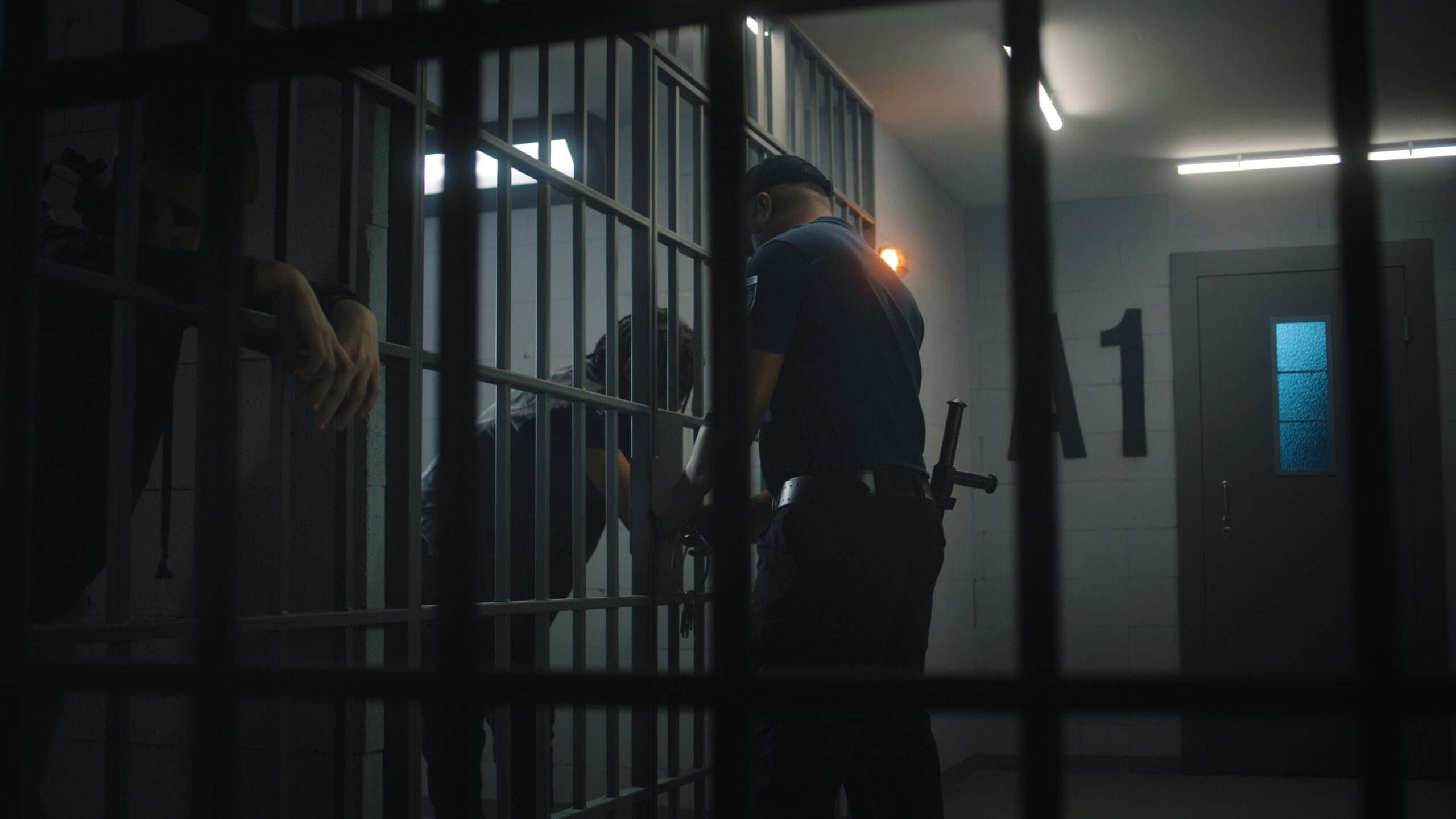
If you lose a probation revocation hearing, the judge may agree to release you on “time served.”
5. Common Violations
In California, ten of the most common probation violations we see that trigger a PVH include:
- failure to appear for a court date or report to the probation officer,
- failure to complete community service hours,
- failure to attend counseling (such as anger management or a certified batterer’s program in domestic violence cases),
- failure to attend rehab, such as substance abuse treatment,
- failure to attend DUI school (in DUI criminal cases),
- failure to seek or maintain employment,
- failure to finish a GED program or earn a high school degree,
- commission of a new crime during the probationary period,
- failure to submit to or pass a drug test, and
- willful failure to pay fines or restitution restitution.
Note that missing a fine or restitution payment should not trigger a probation revocation as long as the non-payment was due to a change in circumstances you were unaware of when the judge granted probation. Instead, the judge can extend your probation to give you more time to pay.5
If you are unable to make a court-ordered payment, contact the court right away. If you delay, the judge may construe your inaction as willful non-payment.

“Technical violations” are when you violate one of the terms of probation. “Direct violations” are when you commit an entirely new criminal offense.
6. Hearsay
Unlike with California criminal trials, hearsay evidence is generally admissible at probation violation hearings as long as it is reliable. Hearsay is a statement that:
- was made other than by a witness testifying at the trial and
- is offered to prove the truth of the content of the statement.
Example: John testifies at your PVH that his sister, Debbie, told him that you smoked marijuana in violation of your misdemeanor probation. This is hearsay because the statement was made by Debbie and not John (the person testifying), and the statement is being used to prove the truth of its content – that you violated probation.
There are limitations. For instance, if hearsay is the only evidence of your probation violation, the judge may need to show “good cause” to allow the hearsay instead of live testimony. If the judge cannot show good cause, you would have the Sixth Amendment right to cross examine (“confront”) the person making the allegation against you.6
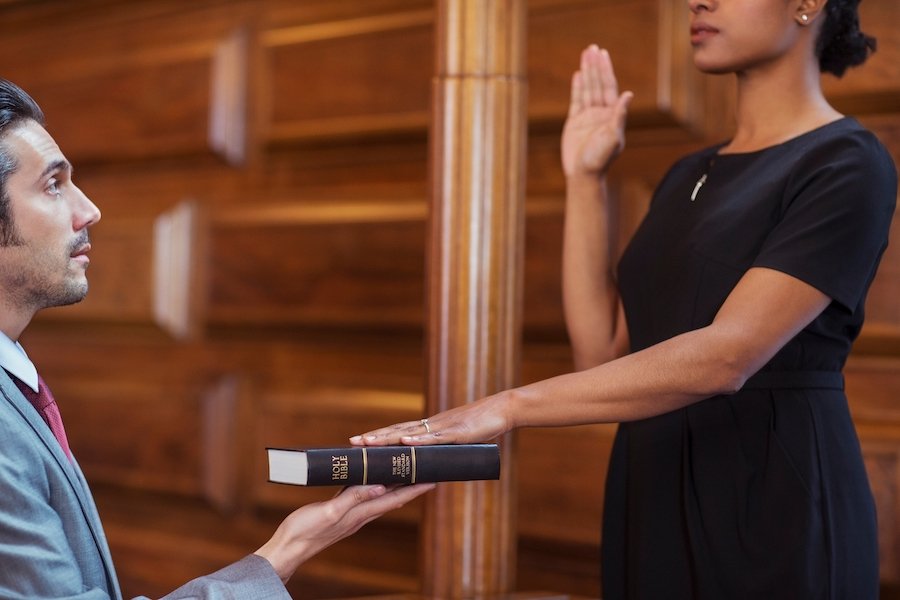
Hearsay is typically admissible in probation violation hearings.
Additional Resources
For more in-depth information, refer to the following scholarly articles:
- Legal and Extralegal Factors Associated with Success on Misdemeanor Probation – Open Journal of Social Sciences.
- Fugitives from Justice: An Examination of Felony and Misdemeanor Probation Absconders in a Large Jurisdiction – Federal Probation.
- New Directions in Misdemeanor Probation – Judicature article about advances in probation for misdemeanor offenders.
- Felony probation: A re-examination of public risk – American Journal of Criminal Justice article weighing the benefits of probation with the risks to public safety.
- Probation and Felony Offenders – Federal Probation article about how probation works in felony cases.
Legal References:
- People v. Coleman (1975) 13 Cal.3d 867. Bench warrants are not the same things as arrest warrants, which are issued because of suspected criminal activity. Depending on the nature of your alleged probation violation, judges can issue either a bench and/or arrest warrant. See also See also People v. Rodriguez (1990) 51 Cal.3d 437; People v. Belche (Cal. App. 3d Dist., 2020) 53 Cal. App. 5th 956.
- Penal Code 1203.2; People v. Ham (1975) 44 Cal.App.3d 288, 293. People v. Pipitone (1984) 152 Cal.App.3d 1112.
- Penal Code 1203.2 PC.
- In Morrissey v. Brewer (1972) 408 U.S. 471, 485. In re Williams (1974) 36 Cal.App.3d 649.
- Penal Code 1203.2. People v. Cookson (1991) 54 Cal.3d 1091.
- People v. Brown (1989) 215 Cal.App.3d 452. People v. Arreola (1994) 7 Cal.4th 1144 (“while the probationer is not entitled to the full panoply of constitutional rights given a defendant at trial, he is entitled to due process, which requires that testimonial hearsay evidence critical to the revocation decision generally cannot be used unless good cause is shown for its nonproduction”). See also People v. Gray (Cal. App. 2d Dist., 2021) 63 Cal. App. 5th 947.
